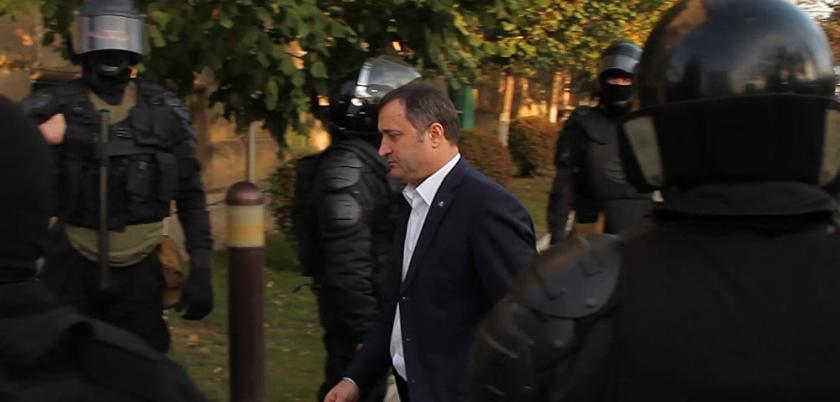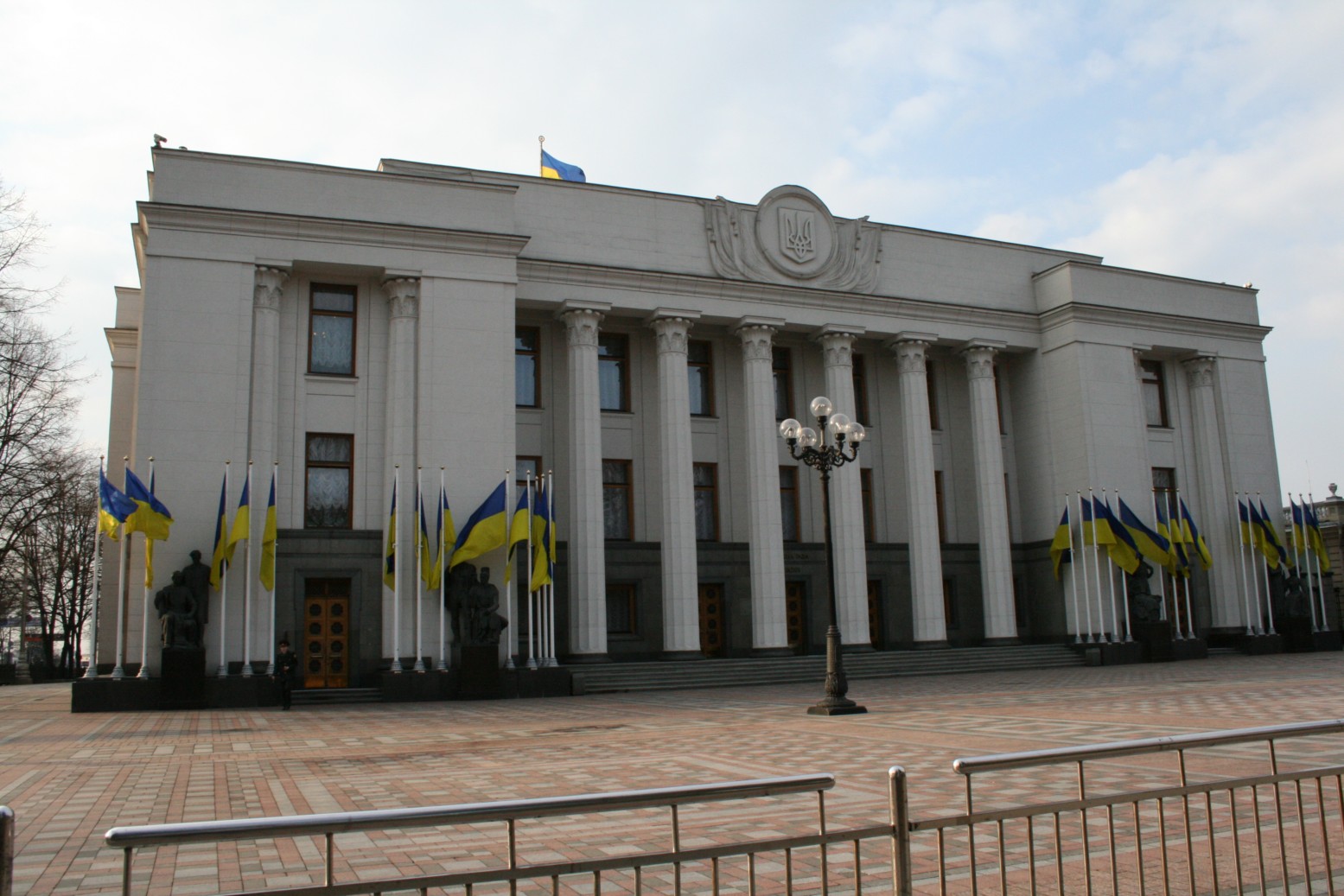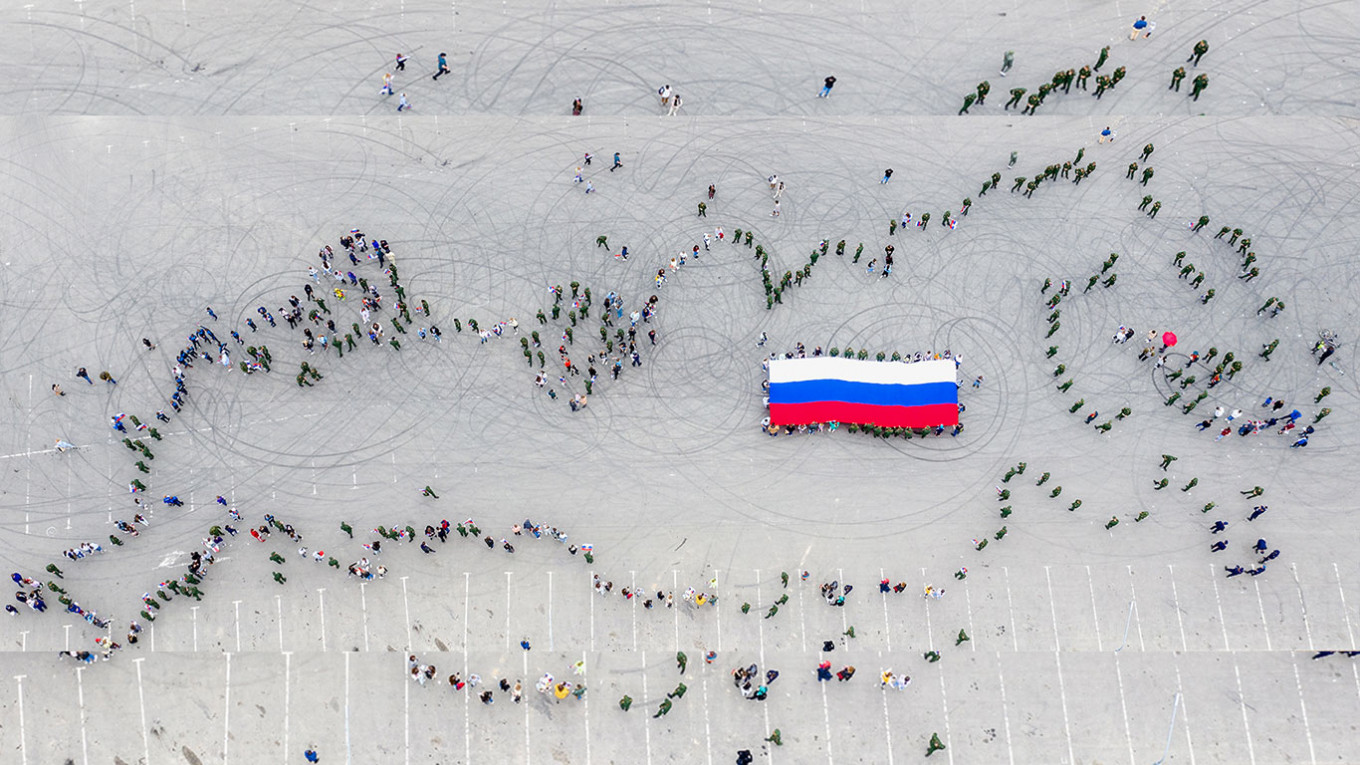
Moldovan Political Leader Filat Arrested in Intra-Coalition Coup
Moldovan Political Leader Filat Arrested in Intra-Coalition Coup
Moldova is theoretically a parliamentary republic, but its parliament was in recess for two and a half months, hiding away from the economy’s collapse, uncontrollable corruption, loss of the political system’s legitimacy, and regime-change movements competing against each other. Western embassies in Chisinau also seem to have run out of solutions for the erstwhile democratic model-student Moldova (see accompanying article).
Moldova’s coalition government, nominally pro-Europe but deeply factionalized, holds slightly more than half of the seats in parliament, and has lost the support of Chisinau’s pro-Western circles. The government had convened a national roundtable consultation on the eve of the parliament’s reopening, only to be rebuked by civil society representatives. The legislature convened at last on October 15, heavily guarded by riot police and surrounded by thousands of pro-Russia demonstrators (for whom the pro-Western protesters had cleared the way).
Rather than addressing the country’s multiple crises, the re-convened parliament became the scene of an intra-coalition coup instigated by Vlad Plahotniuc, Moldova’s richest businessman and informal leader of the Democratic Party in the coalition government. With no advance notice, the Parliament was asked to approve the arrest of Plahotniuc’s long-time rival, Liberal-Democrat leader Vlad Filat, chairman of the main pro-Western party in the governing coalition. Stunned at first, the parliament then quickly approved the arrest by a large majority.
Plahotniuc’s team had pre-planned these proceedings. The parliament’s chairman, Andrian Candu, who is Plahotniuc’s godson, unexpectedly changed the session’s agenda and read aloud a criminal indictment of Filat by the Prosecutor’s Office. Prosecutor-General Corneliu Gurin and Anti-Corruption Center chief Viorel Chetraru—two Plahotniuc loyalists, both appointed under Plahotniuc’s Democratic Party’s quota—then stepped in. Gurin took the floor to quote businessman Ilan Shor—implicated in the recent “billion-dollar” bank fraud—as incriminating Filat in that and one other alleged fraud. Chetraru led his masked officers into the parliament’s hall and escorted Filat to a detention center for pre-trial investigation.
Except for Filat’s party, all the other parties voted unanimously to lift his parliamentary immunity: whether from partisan motives, fear of being targeted themselves by Plahotniuc-controlled prosecutors, or simply in response to a popular clamor for heads to roll (Unimedia, Jurnal.Md, Ziarul National, Infotag, October 15–19).
The events just seen inside and outside the national legislature illustrate the extent to which rule of law and institutional processes have collapsed in Moldova. Outside the parliament’s building, aggressive pro-Russia demonstrators were illegally searching cars with official license plates, hunting for Filat, while the intimidated Moldovan police stood by.
The charges against Filat carry 10 to 15 years’ imprisonment. A fair trial is unlikely, as Plahotniuc controls key positions in Moldova’s court system. Earlier this year, the same general prosecutor and anti-corruption chief arrested three of Filat’s relatives and are still holding them for possible trial.
In his farewell speech to the parliament, Filat characterized the charges against him as fabricated. He described Plahotniuc as the mastermind of Moldova’s hidden financial flows, controller of the law-enforcement and judicial systems, and undeclared owner of Moldova’s dominant media holding. That Plahotniuc holds so much informal, networked personal power, is seen as an indisputable fact by civil society, independent media, and Western embassies in Chisinau.
Up to a point, the drama in the parliament on October 15 replayed the Filat-Plahotniuc confrontations of June 2011 and January–April 2013. As prime minister of the same coalition government in those years, Filat denounced Plahotniuc as the “master puppeteer” of Moldova’s financial-banking system, law enforcement apparatus, and of a gamut of politicians. In those confrontations, Filat was attempting to dislodge Plahotniuc from the pinnacle of informal power. But Filat lost both fights, retreating each time under threats from Plahotniuc-controlled prosecutors. Moreover, European embassies and Brussels demanded each time of Filat to prioritize the coalition’s “stability.” Filat alluded to this fact in his farewell speech, but only the well-informed would have understood those allusions. Since then, Filat had been biding his time, avoiding open conflict with Plahotniuc in the governing coalition.
This time, however, it was Plahotniuc who initiated the confrontation; and he went even farther by having Filat arrested and criminally charged. Capitalizing on the widespread anti-system odium, Plahotniuc used this same system to channel the odium selectively against his rival, eliminating the latter from the arena.
Moreover, Plahotniuc’s group has gained a respite to reshuffle the political cards within the system and outside it. It is this group that has become the main target of anti-“oligarchic” sentiment in recent months. To deflect the main thrust of that sentiment, Plahotniuc orchestrated a controlled investigation against Shor (see above) and the arrest of Filat, as anti-“oligarchic” actions for public consumption. This is also intended to defuse the clamor for Gurin’s, Chetraru’s, and other Plahotniuc loyalists’ removal from their posts. These officials now claim to be busy “combating crime and corruption” in Filat’s and Shor’s guises and cannot resign until they “resolve” these cases. First and foremost, letting Filat’s head roll is supposed to pacify the public (if not necessarily the protest leaders), at least temporarily (see EDM, September 9, October 6).
Shor, meanwhile, has the status of a “protected witness” in the anti-Filat investigation handled by Plahotniuc’s men. Shor is free, and might even claim immunity from prosecution in his capacity as an elected official, having recently paid his way to election as mayor of the city of Orhei. During the prime-ministership of Iurie Leanca (May 2013–February 2015), the government turned over the controlling stock package in the Banca de Economii (Moldova’s largest bank) and the concession of Chisinau International Airport to obscure Russian companies, and Shor became the board chairman of both companies. The politically-tainted proceedings against Filat seem also designed for stalling the investigations into those twin scandals, or diverting the investigations onto false tracks (see accompanying article).


